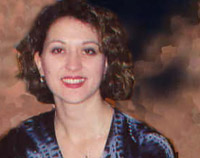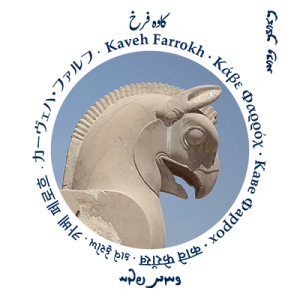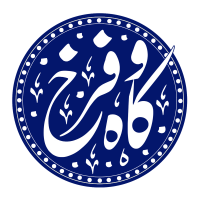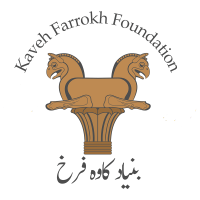Sheda Vasseghi has completed her PhD Dissertation at the University of New England entitled:

Sheda Vasseqhi
Vasseghi’s PhD academic advising team were composed of the following members: Marylin Newell, Laura Bertonazzi and Kaveh Farrokh.
Her study explored a number of widely taught college-level history textbooks in order to examine how these positioned Iran and Iranian peoples in the origins of Western Civilization. As noted by Vasseghi in her abstract:
“Western Civilization history marginalizes, misrepresents, misappropriates, and/or omits Iran’s positioning. Further, the mainstream approach to teaching Western Civilization history includes the Judeo-Christian-Greco-Roman narrative.”
Vasseghi used a multi-faceted theoretical approach—decolonization, critical pedagogy, and Western Civilization History dilemma—since her study transcended historical revisionism. This collective case study involved eleven Western Civilization history textbooks that, according to the College Board’s College-Level Examination Program (CLEP), are most popular among American college faculty. Vasseghi reviewed and collected expert opinion on the following five themes:
(1) terminology and definition of Iran, Iranians, and Iranian languages
(2) roots and origins of Iranian peoples
(3) which Iranian peoples are noted in general
(4) which Iranian peoples in ancient Europe are specifically noted
(5) Iranians in connection with six unique Western Civilization attributes.
Vasseghi selected experts specializing in Iranian, Western Civilization, and Indo-European studies in formulating a consensus on each theme. She then compared expert opinion to content in surveyed textbooks. Vasseghi discovered that the surveyed textbooks in her study overwhelmingly omitted, ill-defined, misrepresented, or marginalized Iran and Iranians in the origins of Western Civilization.

Readers are encouraged to visit Kaveh Farrokh’s Academia.edu profile cited in the introduction of this post to download Sheda Vasseghi’s Dissertation. Here is one of the quotes from her study:
“The researcher recommends that textbook authors and publishers engage experts in the field of Iranian studies in formulating content. A caveat for engaging those in the field of Iranian studies when writing Western Civilization history textbooks involves making a distinction between a native Iran and post-Islamic invasion and colonization of Iran in early Middle Ages (7th century onwards). That is, in the Age of Antiquity, Iran was under an Iranian governance and ancestral beliefs such as Zoroastrianism and Mithraism.”
This is an important observation given Western Media and academic outlets using sweeping (if not simplistic) terms such as “Middle East”, “Muslims”, etc. without acknowledging the context of Iran’s unique background, ancient history and language(s). Put simply, terms such as “Middle East” are not scientific but geopolitical in origin. The term “Muslim Civilization” for example serves to dilute (or even blur) the critical role of Iranian and Indian scholars in the preservation and promotion of learning, sciences and medicine. Arab historians such as Ibn Khaldun (1332-1406) who in his Muqaddimah (translated by F. Rosenthal (III, pp. 311-15, 271-4
[For more see: Farrokh, K. (2015). Pan-Arabism and Iran. In “The Palgrave Encyclopedia of Imperialism and Anti-Imperialism” (Immanuel Ness & Zak Cope, Eds.), Palgrave-Macmillan, pp.915-923.]“…It is a remarkable fact that, with few exceptions, most Muslim scholars…in the intellectual sciences have been non-Arabs…thus the founders of grammar were Sibawaih and after him, al-Farisi and Az-Zajjaj. All of them were of Persian descent…they invented rules of (Arabic) grammar…great jurists were Persians… only the Persians engaged in the task of preserving knowledge and writing systematic scholarly works. Thus the truth of the statement of the prophet becomes apparent, ‘If learning were suspended in the highest parts of heaven the Persians would attain it”…The intellectual sciences were also the preserve of the Persians, left alone by the Arabs, who did not cultivate them…as was the case with all crafts…This situation continued in the cities as long as the Persians and Persian countries, Iraq, Khorasan and Transoxiana (modern Central Asia), retained their sedentary culture.”
Sources such as Ibn Khaldun are now rarely mentioned in many modern-day “Islamic Studies” in Western history textbooks which may explain in part the numerous errors uncovered in Vasseghi’s study. She further avers:
“Critical pedagogy is important in transformational leadership in education. Educators are obligated to point out errors or problems in content and mainstream narratives. In regards to teaching history of Western Civilization, one should recall the warnings of its looming demotion by Ricketts et al. (2011) because unfortunately teaching it “had come to be seen as a form of apologetics for racism, imperialism, sexism, and colonialism” (p. 14). It appears that in perceiving that something is missing from or fragmented in Western Civilization history content, educational institutions are now marginalizing and omitting it from their curriculum in America, a Western nation. Therefore, the significance of this study is the need for authors and educators to shift the currently flawed narrative on the history of the West. Iran’s positioning is a key component in the study of Western Civilization. The researcher argues that Iran and Iranians not only influenced the making of the West; they are part of the West. By placing Iran and Iranians where they belong, historians may also address concerns about teaching the history of the West (Ricketts et al., 2011).”
In her final PhD defense session with her research committee (Marylin Newell, Laura Bertonazzi and Kaveh Farrokh) on Monday, March 20, 2017, Vasseghi noted that she plans to author books tailored to Western audiences to help educate with respect to the role of Iranians in the formation of European civilization. Vasseghi’s books would also be geared towards a lay (non-academic) audience.



